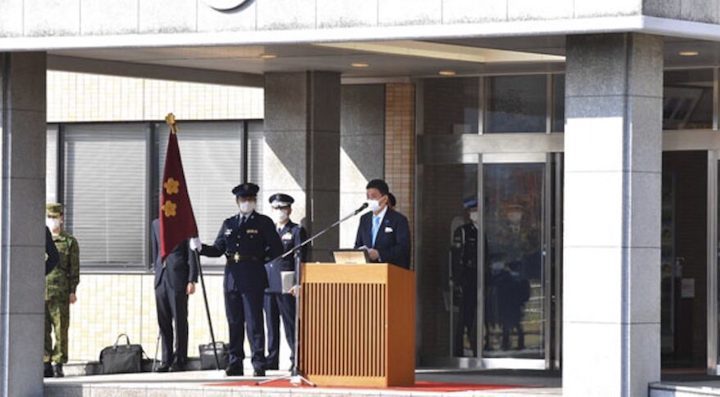17.11.2021

SEOUL, South Korea — Japan will launch a second space defense unit at an airbase in the country’s west within the next 18 months to monitor electromagnetic wave threats to its satellites.
Defense Minister Nobuo Kishi announced the plan of establishing the second Space Operations Squadron at the Hofu Kita Air Base in Yamaguchi Prefecture Nov. 14, saying it’s “extremely important to secure the stable use of outer space,” according to a statement. The unit would be established during Japan’s fiscal 2022, which begins April 1.
“As we expand our operations in new domains — the fields of outer space, cyberspace and the electromagnetic spectrum — it is extremely important to secure the stable use of outer space,” the defense minister said. “The location was selected after considering various factors comprehensively.”
The new squadron’s establishment is “part of Japan’s efforts to beef up its capabilities in new domains such as outer space, as China and Russia are building up their own capacity in the electromagnetic spectrum,” according to Kyodo News. A space surveillance radar is already being built at the airbase for its full operation in 2023, it reported.
Japan opened its first Space Operations Squadron in May 2020 at an airbase in Fuchu, western Tokyo, tasked with monitoring space debris, asteroids and other threats to its satellites.
The second squadron’s establishment indicates that Japan would further deepen its cooperation with the United States on space security issues. Japan’s Self-Defense Force has tried to expand its cooperation and weapons compatibility with the U.S. Space Force, as it increasingly works alongside American troops and as it grows concerned about the increasing capabilities of China. A case in point was the space security collaboration agreement signed in March between Japan Air Self-Defense Force and the U.S. Space Command. Under the agreement, the Japan Air Self-Defense Force has assigned a liaison officer full-time at U.S. Space Command headquarters at Peterson Air Force Base, Colorado. Japan has also been operating the Quasi-Zenith Satellite System since November 2018, a homegrown geolocation system that enhances the regional accuracy of GPS-based timing and navigation services. The U.S. Space Force is in charge of operating the GPS system.
On the civil space front, Japan joined NASA’s Artemis program in October 2020 and this has paved the way for Japanese organizations to participate in the U.S.-led lunar exploration. While Tokyo-based ispace, for example, is developing a robotic lunar lander to compete for NASA commercial payload contracts, the Japan Aerospace Exploration Agency (JAXA) has agreed to contribute key components of lunar Gateway, a the space station NASA and its partners aim to build near the moon to support surface operations.
Quelle: SN
